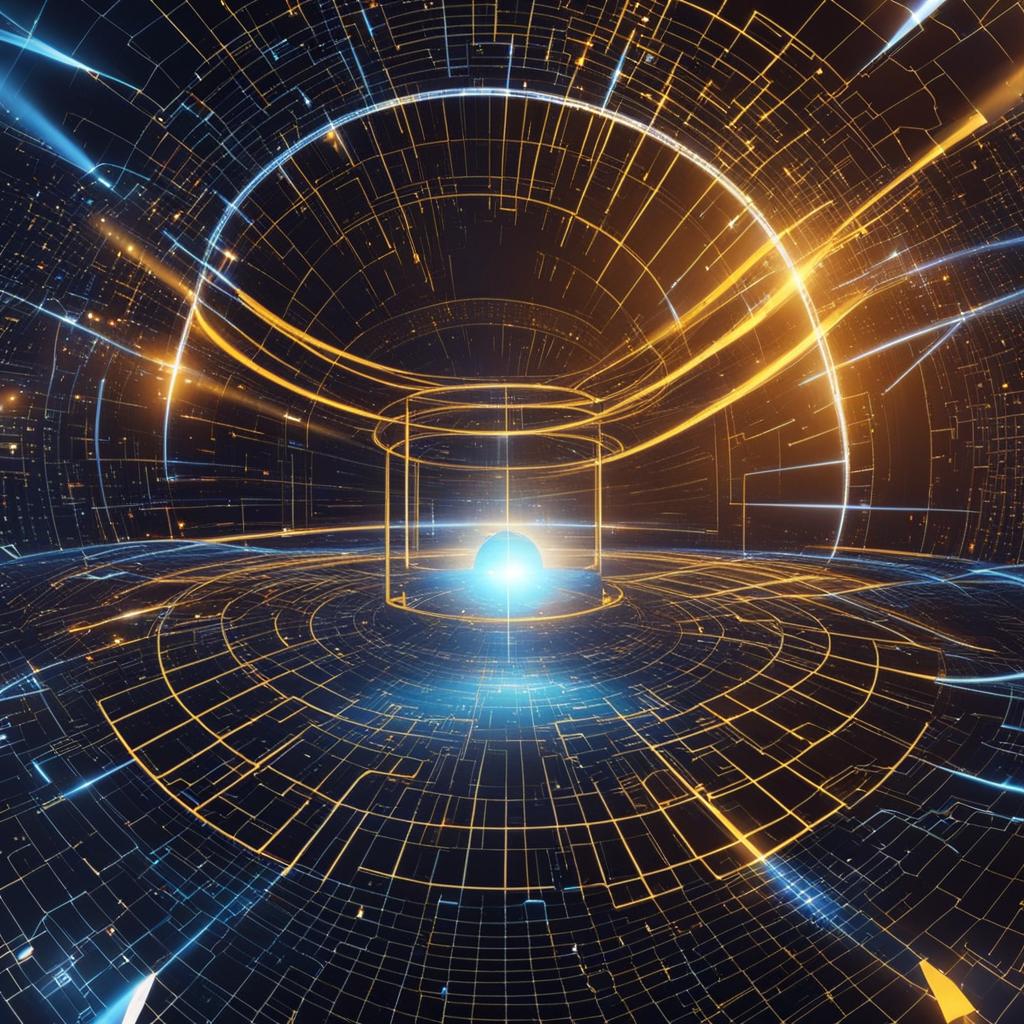A group of scientists from the esteemed RIKEN Centre for Quantum Computing have harnessed the powerful powers of machine learning, making a major step towards realizing the potential of quantum computers. Their objective is to take on the formidable problem of quantum error correction, a crucial undertaking that might advance the field of quantum computing. This article examines the current development, illuminating its significant ramifications and the way forward.
With its promise of completely altering the world of computation, quantum computing has long tantalized the globe with its qubits’ special capacity to live in superpositions. Qubits stand apart from conventional bits, which are only capable of holding binary values of 0 and 1. When combined with quantum entanglement, it opens the door of executing novel processes. Large-scale searches, optimization issues, and cryptographic research all benefit from these abilities.
Quantum error correction is the hardest challenge
However, the susceptibility of quantum superpositions is the Achilles’ heel of quantum computing. The benefit that quantum computing gives is negated by minute disturbances, which arise from the surrounding environment and degrade these sensitive quantum states.
Traditional methods and their drawbacks
Earlier attempts at quantum error correction have frequently been hampered by the enormous complexity they impose on quantum devices. Sadly, the addition of such complexity has, in a paradoxical way, increased the likelihood of mistakes. The completion of comprehensive error correction has remained a challenge.
In the quest for quantum error correction, the field of machine learning is a strong ally. The RIKEN research team skillfully applied machine learning techniques to identify mistake correction algorithms that deftly tread the line between efficacy and efficiency.
The autonomy paradigm
It was decided to take a novel, “autonomous” method to quantum error correction. Here, numerous error-detecting measures are replaced by a well planned artificial environment. This novel approach intends to reduce the complexity of quantum devices while maintaining the robustness of error correction techniques.
The study examines “bosonic qubit encodings, a potential route observed in several of the most prominent quantum computing systems rooted in superconducting circuits. The goal is to find effective encoding techniques in this area.
Reinforcement learning’s critical role
It was extremely difficult to optimize in the complex environment of bosonic qubit encodings. The RIKEN researchers used reinforcement learning, a sophisticated machine learning approach, to take on this obstacle head-on. In reinforcement learning, an agent interacts with the environment while gradually optimizing its actions, which has proven to be a highly successful approach in this situation.
An unexpected discovery was the result of the research. In comparison to other proposed encodings, a seemingly straightforward, approximation qubit encoding emerged as a top contender with streamlined device complexity and greater error-correction abilities.
In a statement highlighting the significance of this accomplishment, Yexiong Zeng, the paper’s original author, said, “Our work not only illustrates the potential of integrating machine learning into the field of quantum error correction, but may also bring us one step closer to realizing quantum error correction in practical experiments.”
Franco Nori, a renowned specialist in the field, gave light on the wider ramifications, noting that machine learning is well-positioned to play a crucial role in addressing the major issues of large-scale quantum processing and optimization.
A huge step forward in quantum computing
Exciting new prospects for quantum computing’s future have been revealed by the RIKEN Centre for Quantum Computing’s breakthrough. We can expect future developments in this dynamic subject as the research community continues to investigate the interaction between machine learning and quantum error correction.
A significant step towards usable quantum computing is the integration of machine learning with quantum error correction. In the gruelling fight against quantum errors, the autonomous error correction system and cutting-edge techniques like bosonic qubit encodings and reinforcement learning provide hope. Despite ongoing difficulties, the RIKEN research team has shown a promising route towards a time when quantum computing would be able to shine brightly.
This ground-breaking study not only highlights the enormous potential of machine learning within quantum technology, but it also demonstrates the scientific community’s unwavering commitment to pushing the limits of what is possible in the field of computing. We eagerly await new advancements on the path to realizing the full potential of quantum computing as this voyage moves forward.








